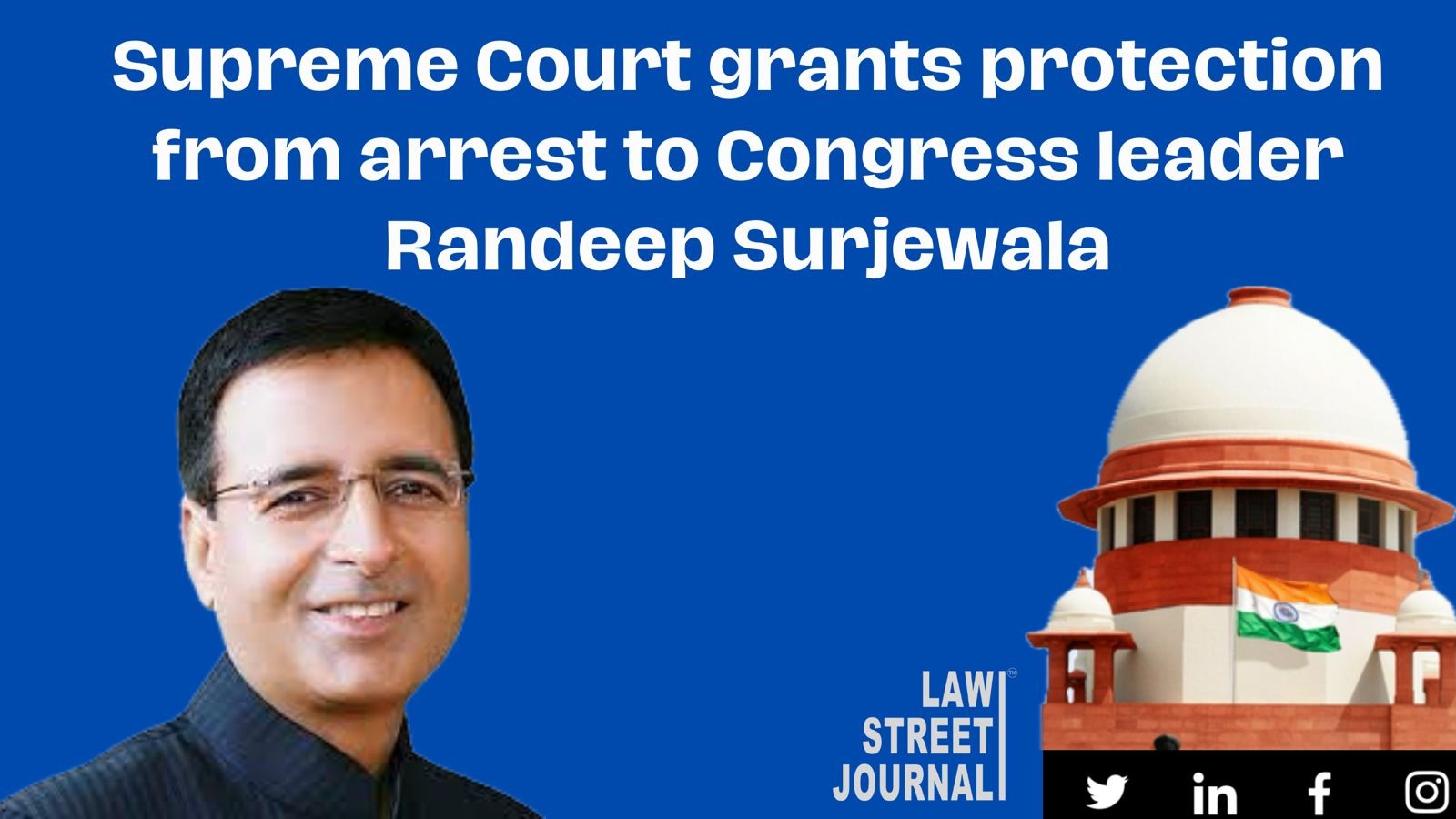NEW DELHI: The Supreme Court on Thursday granted protection to Congress General Secretary Randeep Singh Surjewala, for five weeks against a non bailable warrants issued in connection with an over two-decade old case of violent protest in Varanasi.
A bench of Chief Justice of India D Y Chandrachud and Justices J B Pardiwala and Manoj Misra acted on a writ petition filed by Surjewala under Article 32 of the Constitution.
The court gave four weeks time to him to appear before the Varanasi court for cancellation of the NBW.
On behalf of Surjewala, senior advocate A M Singhvi mentioned the matter for urgent hearing.
He submitted that the NBW has been issued against the secretary of a major political party for an incident which took place 23 years ago.
"Why did you come here? You should go to the high court," the bench asked him.
Singhvi said he went to the high court but they did not pass an order and the urgent mentioning was declined. He also said the NBW was issued by the designated court even though the Allahabad High Court has reserved its judgement on a petition filed by the petitioner under Section 482 of the Criminal Procedure Code.
"Where was the need to issue NBW, when the HC has reserved its order on 482 petition," he asked.
Singhvi said it is an FIR of the year 2000 because of alleged political agitation involving the petitioner as a youth Congress leader.
Singhvi said on October 30, the high court reserved the order and on November 7, the NBW was issued against his client for appearance on November 21, and he went to the high court but the high court did not either allow mentioning or listing.
The apex court said that it will say that Surjewala can appear and apply for cancelling NBW.
Singhvi said this court is aware of Allahabad High Court and the court should give his client four weeks- "breathing time".
After hearing the petitioner's side only, the bench said, bearing in minds the facts of the case, the petitioner is granted liberty to move an application for cancellation of NBW before the trial court within a period of four weeks, and the warrant would not be executed in the meantime for the period up to five weeks.
















